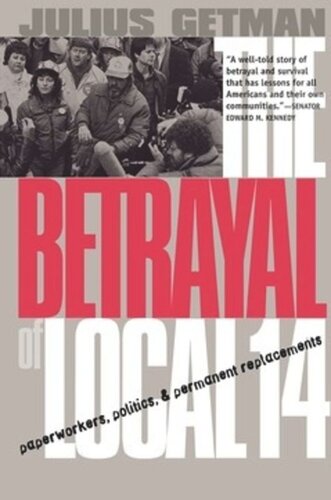

Most ebook files are in PDF format, so you can easily read them using various software such as Foxit Reader or directly on the Google Chrome browser.
Some ebook files are released by publishers in other formats such as .awz, .mobi, .epub, .fb2, etc. You may need to install specific software to read these formats on mobile/PC, such as Calibre.
Please read the tutorial at this link: https://ebookbell.com/faq
We offer FREE conversion to the popular formats you request; however, this may take some time. Therefore, right after payment, please email us, and we will try to provide the service as quickly as possible.
For some exceptional file formats or broken links (if any), please refrain from opening any disputes. Instead, email us first, and we will try to assist within a maximum of 6 hours.
EbookBell Team

4.1
50 reviewsInternational Paper, the richest paper company and largest landowner in the United States, enjoyed record profits and gave large bonuses to executives in 1987, that same year the company demanded that employees take a substantial paycut, sacrifice hundreds of jobs, and forego their Christmas holiday. At the Adroscoggin Mill in Jay, Maine, twelve hundred workers responded by going on strike from June 1987 to October 1988. Local union members mobilized an army of volunteers but International Paper brought in permanent replacement workers and the strike was ultimately lost. Julius G. Getman tells the story of that strike and its implications—a story of a community changing under pressure; of surprising leaders, strategists, and orators emerging; of lifelong friendships destroyed and new bonds forged. At a time when the role of organized labor is in transition, Getman suggests, this strike has particular significance. He documents the early negotiations, the battle for public opinion, the heroic efforts to maintain solidarity, and the local union's sense of betrayal by its national leadership. With exceptional richness in perspective, Getman includes the memories and informed speculations of union stalwarts, managers, and workers, including those who crossed the picket line, and shows the damage years later to the individuals, the community, and the mill. He demonstrates the law's bias, the company's undervaluing of employees, and the international union's excessive concern with internal politics.